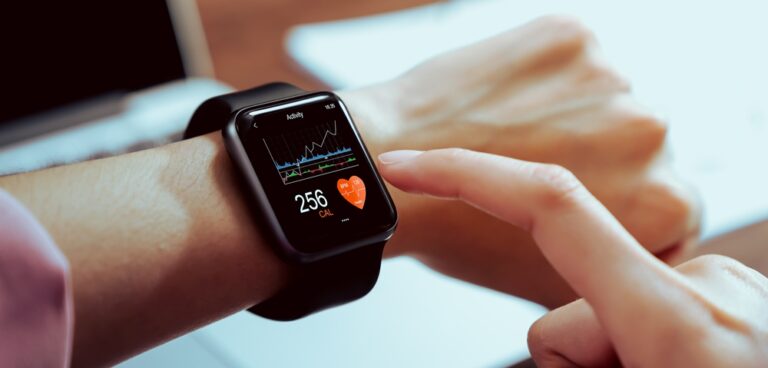From virtual reality (VR) and robotics to wearables and chatbots, eight of the tech trends changing the healthcare industry have been revealed.
FDM Group, a global business and tech consultancy, has highlighted eight ways that technological advancements are presenting opportunities for the healthcare industry to improve efficiency, personalise care, and ultimately, enhance patient outcomes.
In the healthcare industry, we are witnessing a shift from traditional care models towards more personalised, patient-centric approaches, which are largely being driven by advancements in digital technology.
The integration of technology in healthcare is laying the foundation for safer, more efficient, and more human-centred healthcare solutions.
Here are eight ways that technology is changing the healthcare industry:
- AI in healthcare
Artificial Intelligence (AI) in healthcare is experiencing unprecedented growth and is expected to be worth approximately $148.4 billion by 2029*. One of the main drivers for this growth is the availability of tremendous healthcare data sets that are predicted to revolutionise the industry with the right analysis.
Key applications of AI in healthcare include using AI algorithms to analyse medical images such as X-rays, CT scans, and MRIs, leveraging AI-powered Clinical Decision Support Systems (CDSS) to assess patient data, and running AI-driven chatbots and virtual assistants.
-
Health trackers and wearables
Health trackers and wearables have transformed the healthcare industry by providing individuals with real-time insights into their health and lifestyle habits. Some of the most common types of devices include smartwatches and fitness bands, which monitor physiological parameters such as heart rate, sleep patterns, physical activity, and even stress levels.
For healthcare professionals, health trackers facilitate remote patient monitoring, allowing healthcare providers to remotely track patients’ vital signs and adherence to treatment plans. This is particularly beneficial for individuals with chronic diseases, enabling early detection of health deteriorations and timely interventions, thereby reducing hospitalisations and improving overall health outcomes.
-
Virtual Reality (VR) and Augmented Reality (AR)
VR and AR are commonly used in medical training and education, providing simulations for medical students and healthcare professionals to practise surgical procedures, medical interventions, and patient interactions in a risk-free setting.
Virtual Reality and Augmented Reality are innovative technologies increasingly utilised in the healthcare sector, offering a wide array of applications aimed at enhancing medical education and improving patient care.
-
Electronic Health Records (EHR) systems
Electronic Health Records (EHR) systems are digital versions of patients’ paper charts, containing a comprehensive record of a patient’s medical history, including their diagnoses, medications, treatment plans, immunisation dates, allergies, and more.
EHR systems generate valuable data that can be analysed to identify trends, track population health metrics, and improve healthcare outcomes at the population level. This can be beneficial on a large scale, supporting public health initiatives and quality improvement efforts.
-
Robotics for surgical procedures
Robotics for surgical procedures involves the use of advanced robotic systems to assist surgeons in performing intricate and precise surgical interventions. These systems typically consist of robotic arms equipped with surgical instruments, a high-definition camera, and a console where the surgeon controls the robotic arms with hand and foot movements or through computer interfaces.
The use of robotics in surgery has evolved significantly over the years and offers several advantages over traditional surgical techniques.
-
3D printing
The use of 3D printing in healthcare, also known as additive manufacturing, has revolutionised various aspects of patient care, medical research, and education.
3D printing is making waves in surgical guides and implants as it is used to manufacture patient-specific surgical guides and implants tailored to individual anatomies. Surgical guides help surgeons achieve greater precision during procedures by providing customised templates for cutting bone or placing implants.
-
Health chatbots and virtual assistants
Health chatbots and virtual assistants are digital tools powered by artificial intelligence (AI) that interact with users to provide information and assistance related to healthcare and wellness. These technologies leverage natural language processing (NLP) and machine learning algorithms to understand user queries, analyse data, generate relevant responses, and help people.
One of the best aspects of chatbots is their 24/7 availability, which means they provide round-the-clock access to healthcare information and support. This accessibility is particularly beneficial for individuals seeking quick answers to health-related questions or assistance outside of regular healthcare provider hours.
-
In silico drug trials
In silico drug trials, also known as virtual or computational clinical trials, leverage computer simulations, mathematical modelling, and data analytics to predict the safety, efficacy, and pharmacokinetics of potential drug candidates in silico, or in a computer-based environment.
These trials aim to complement or replace traditional clinical trials conducted in humans, offering several potential benefits, such as reducing costs and time spent on clinical trials. In fact, computer simulations enable rapid testing of multiple drug candidates and dosing regimens, accelerating the drug development process.
FDM is an award-winning global business and technology consultancy powering the people behind tech and innovation for over 30 years. They collaborate with world-leading companies to identify the expertise they need, exactly when they need it.
They have helped successfully launch nearly 25,000 careers globally to date and are a trusted partner to over 200 companies worldwide.
FDM has 5,000+ employees worldwide, with over 90 nationalities working together as a team. From their origins in Brighton, UK, FDM now has 18 centres located across Europe, North America, and Asia-Pacific. FDM Group has been a FTSE 250 employer for 10 years with a global footprint and is now on the FTSE4Good Index.

